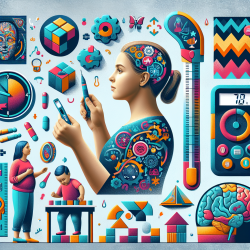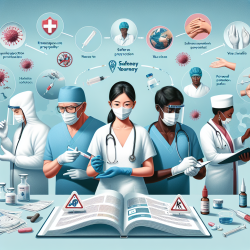Introduction
As a practitioner in the field of speech language pathology, it is crucial to stay informed about innovative programs that can enhance your practice and improve outcomes for children. One such program is the Archway initiative developed by McMaster University, designed to support first-year students' mental health and wellbeing. This blog will explore how the findings from the research article titled "Evaluating the impact of Archway: a personalized program for 1st year student success and mental health and wellbeing" can be applied to enhance your skills and encourage further research.
Understanding the Archway Program
The Archway program was developed in response to the challenges faced by first-year students during the COVID-19 pandemic. With the transition to postsecondary education being particularly stressful, the program aims to provide personalized support to students, addressing their academic, social, and emotional needs. The program is built on several theoretical frameworks, including Schlossberg’s Transition Theory, Sanford’s Theory of Challenge and Support, and Baumeister and Leary’s Need to Belong Theory. These frameworks emphasize the importance of providing adequate support to students while fostering a sense of belonging and social identity.
Key Findings from the Research
The research employed a mixed-method design to evaluate the effectiveness of the Archway program. Key findings include:
- Increased student connectedness and retention through virtual platforms like Microsoft Teams.
- Enhanced mental health and wellbeing among participants, particularly in reducing feelings of loneliness and social isolation.
- Improved academic performance and resilience due to tailored support and community engagement.
Implications for Practitioners
For practitioners in speech language pathology, these findings offer valuable insights into the importance of personalized support and community engagement. Here are some ways to apply these insights to your practice:
- Incorporate Virtual Platforms: Utilize platforms like Microsoft Teams to facilitate virtual therapy sessions and create a sense of community among clients.
- Focus on Belonging: Develop programs that foster a sense of belonging and social identity among children, which can improve their mental health and academic outcomes.
- Tailor Support: Provide personalized support based on individual needs, using data-driven assessments to guide interventions.
Encouraging Further Research
While the Archway program has shown promising results, further research is needed to explore its long-term impact and applicability to different populations. Practitioners are encouraged to engage in research that examines the effectiveness of similar programs in diverse settings, including schools and online therapy platforms.
Conclusion
The Archway program offers a compelling model for supporting student success and mental health through personalized, data-driven interventions. By incorporating these principles into your practice, you can enhance your skills and contribute to better outcomes for children. To read the original research paper, please follow this link: Evaluating the impact of Archway: a personalized program for 1st year student success and mental health and wellbeing.










